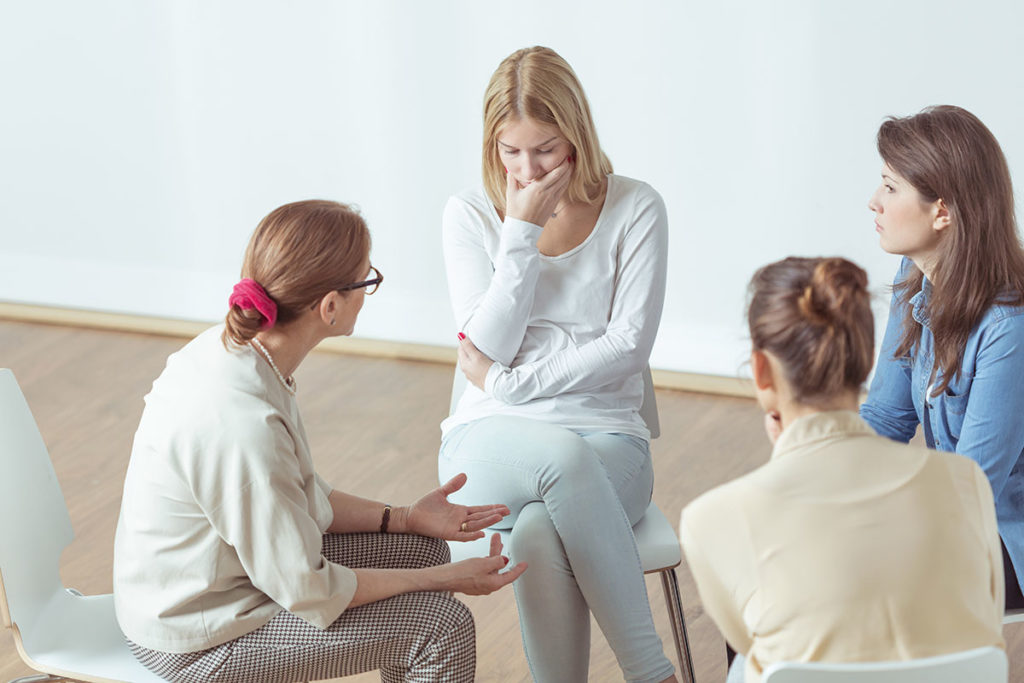Drug or alcohol addiction almost always leads a person to isolation. Isolation from a healthy community brings its own mental health problems. Given that the substance-addicted person is living this sort of detached existence, it ought not to be so surprising that re-connecting them to a group or community will help address several important issues when it comes to recovery. In fact, clinical studies bear this out in saying that group therapy sessions are equally as effective as individual therapy in promoting long-term addiction recovery. Most drug rehab programs make sure to include both types of therapy in their philosophy of treatment. Individual therapy offers people the chance to tackle deep personal issues that underlie their addictive behaviors and which are not always suited to a group setting. One-on-one counseling allows for probing of topics that may require patient and gentle confrontation. Group settings simply cannot accommodate this type of therapy. However, goals may be achieved in a group session which individual therapy cannot reach on its own.
Benefits to Group/Peer Therapy
Group therapy, also known as peer group therapy, provides several important elements to the recovery process.
- Peer group therapy puts the addicted person in a setting where others who are travelling a very similar path can offer them pertinent advice and the benefit of personal experience.
- Peer group therapy allows the person to watch first-hand as others reach milestones of recovery. Observing this recovery in others builds hope that they themselves can achieve the same.
- Peer group therapy removes the sense of isolation associated with addiction. No longer is the person in a “user vs. non-user” frame of mind. The group creates a supportive community where walls of social isolation can be torn down.
- The addicted person is often ill-equipped to practice empathy – the ability to put oneself in another person’s shoes and see things from their perspective. Within the group, the person recovering from addiction can begin to learn to listen to how other people view things. He/she may also be on the receiving end of empathy for the first time in a long time.
- Persons battling addiction may need some practice in learning how to relate with others in healthy ways. Peer group therapy provides the opportunity to practice social skills in a 100 percent supportive setting.
Group therapy modalities vary. A few of the most common are:
- Support Group – this provides members with needed emotional support.
- Psychoeducational Group – this group is a non-threatening format for learning about addiction and attendant mental health concerns.
- Skills Development Group – this group emphasizes learning coping skills and skills needed for healthy interpersonal communication and relating.
- Cognitive Behavioral Group – this group focuses on addressing problems and developing practical solutions.
Group therapies have become an integral part of drug rehab programs and with good cause. Peer therapy groups provide recovering addicts with opportunities to learn about addiction and its causes in a non-threatening environment. Avenues for developing key social skills and communities of emotional support are provided by a group of people all working toward a common goal: create a positive life free of wrong dependencies. The benefit of positively-directed community support is nearly inseparable from effective drug rehab treatment regardless of the method employed. Contact us today at 844.875.5609.

